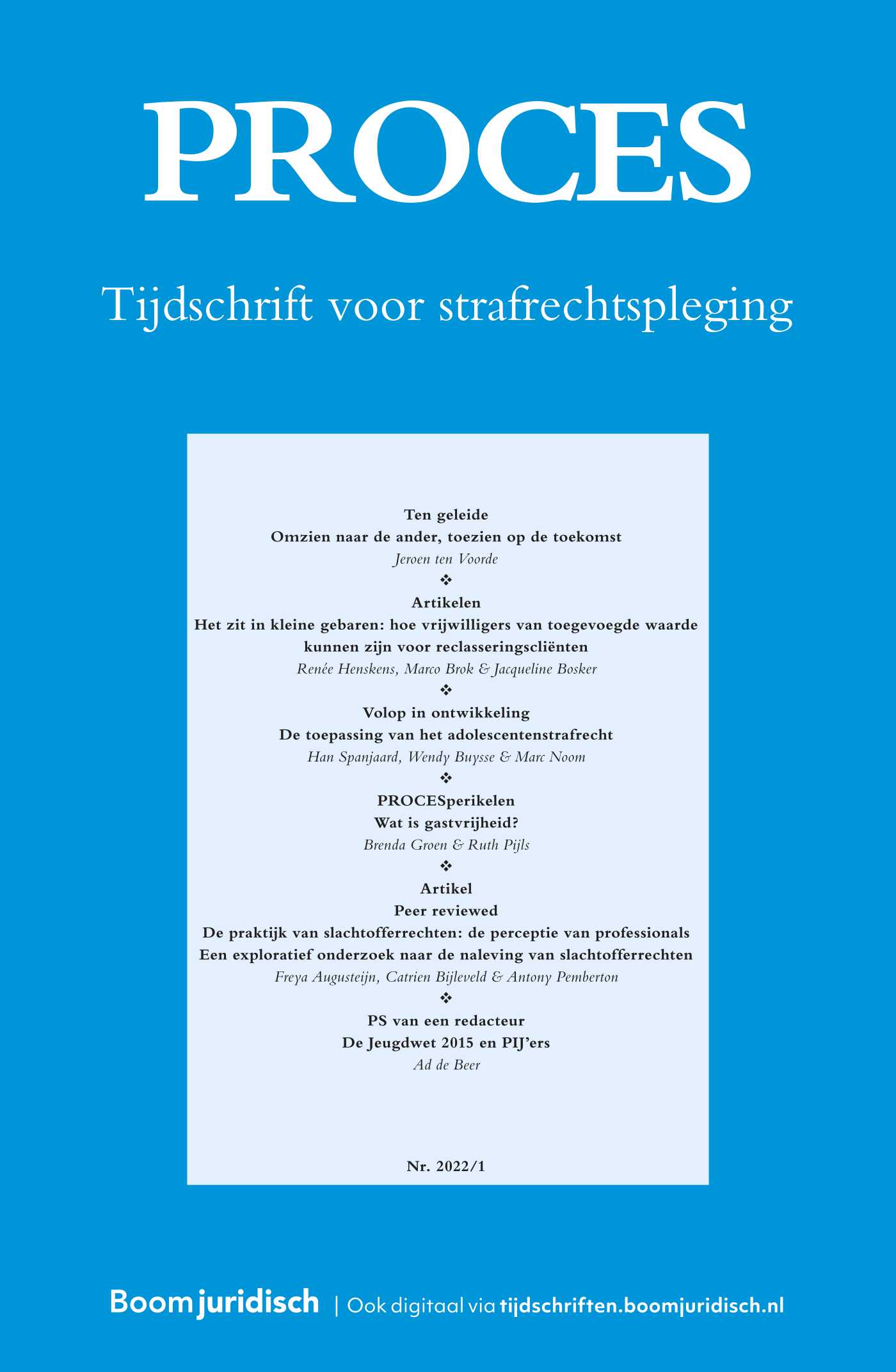|
In recent years, the Dutch Ministry of Justice and Safety has had to deal with severe budget-cuts leading to various austerity measures. For the Dutch Custodial Institutions (DJI) this has had serious consequences, including the closure of nearly half the prisons, the reintroduction of multi-person cells and a retrenchment of the detention regime. However, the chamber announced repeatedly that these cuts would not be detrimental to the core objectives of detention: security, self-reliance, dignity and a safe return to society. The pilot ‘Central facility’ is a project in which DJI wants to ‘test’ in practice her vision for the future. In the pilot, learning and encouraging the own responsibility of detainees through a modified daily program takes a central position. The aim is to increase the self-sufficiency of detainees and to allow for life in prison to resemble more life outside (normalization). In this article we will look more closely at the experiences of prisoners and staff with the amended detention regime in the pilot. |


PROCES
Meer op het gebied van Criminologie en veiligheid
Over dit tijdschriftMeld u zich hier aan voor de attendering op dit tijdschrift zodat u direct een mail ontvangt als er een nieuw digitaal nummer is verschenen en u de artikelen online kunt lezen.
| Redactioneel |
Hoe de kloof tussen de wetenschap en de strafrechtspraktijk te overbruggen |
| Auteurs | Dr. Joke Harte |
| Auteursinformatie |
| Artikel |
Normalisatie en zelfredzaamheid binnen het gevangeniswezenErvaringen van gedetineerden en personeel binnen de proeftuin ‘Centrale voorziening’ in de PI Vught |
| Trefwoorden | Gevangeniswezen, Zelfredzaamheid, Normalisatie, detentieregime |
| Auteurs | Choukri Farahi BSc en Jill van de Rijt BSc |
| SamenvattingAuteursinformatie |
| Artikel |
Nazorg ex-gedetineerden – tien jaar na invoeringTerugblik en huidige stand van zaken |
| Trefwoorden | Nazorg ex-gedetineerden, Reclassering, Recidive, Gemeenten |
| Auteurs | Drs. Karel van Duijvenbooden |
| SamenvattingAuteursinformatie |
|
In 2002, the Dutch Ministry of Justice introduced the programme ‘Reducing Recidivism’ to reduce high recidivism rates among ex-prisoners. As part of this programme, a special project called ‘Follow-up care for former detainees’ was launched late 2004. Until then, little attention had been given to this topic and there had not been any organised form of cooperation between municipalities and penal institutions. In many cases the basic conditions for reintegration were not well arranged. The main aim of the project was to establish a connection between prisons and municipalities by which the basic conditions for social reintegration could be settled. First, cooperation at working level practice was established. In 2007, this practice was confirmed at a political administrative level. In doing so, a unique form of cooperation between prison services and municipalities for follow-up care for former detainees has been realised in the Netherlands. |
| Praktijk |
Participerend pionieren: de rol van de civil society bij het veiligheidsvraagstuk |
| Auteurs | Drs. Mirije Oude Lansink |
| Auteursinformatie |
| Artikel |
Rechters en officieren van justitie willen maatwerk leveren met de voorwaardelijke straf |
| Trefwoorden | voorwaardelijke straf, Recidive, speciale preventie, Resocialisatie |
| Auteurs | Dr. Joke Harte, Mr. dr. Marijke Malsch, Mr. drs. Doris van Dijk e.a. |
| SamenvattingAuteursinformatie |
|
In the Netherlands, the judge has the possibility to impose an entirely or partly suspended sentence. In this article, the perspective of judges and public prosecutors on the deterrent effect of the suspended sentence is investigated. For that purpose, 1000 court decisions were examined, and 15 judges and 15 public prosecutors were interviewed. The results show that the suspended sentence provides opportunities to intervene in the offender’s life regarding issues that are supposed to be related to recidivism. Judges and public prosecutors regard the suspended sentence as an important device to reduce the recidivism risk. |
| Column |
Het vuile badwater en het gezonde kind |
| Auteurs | Dr. Jacqueline Bosker |
| Auteursinformatie |
